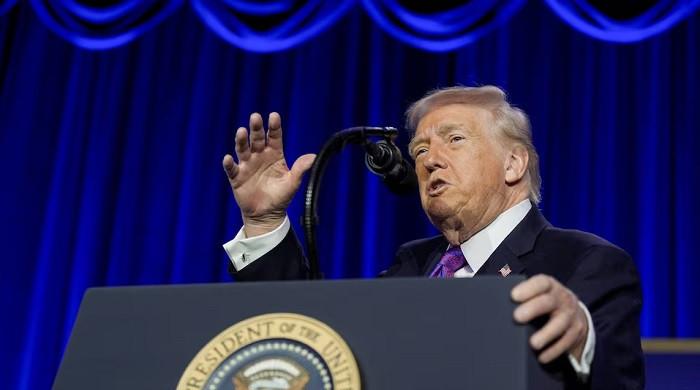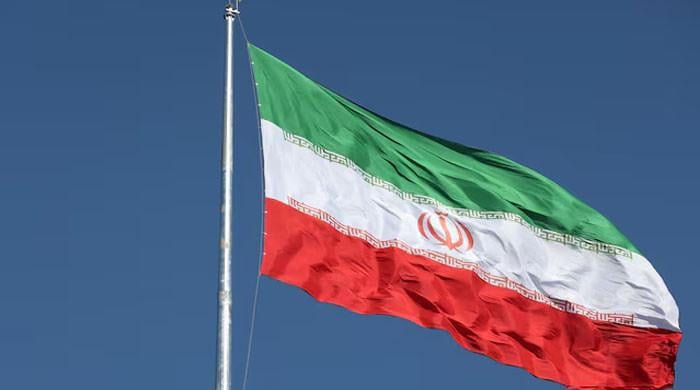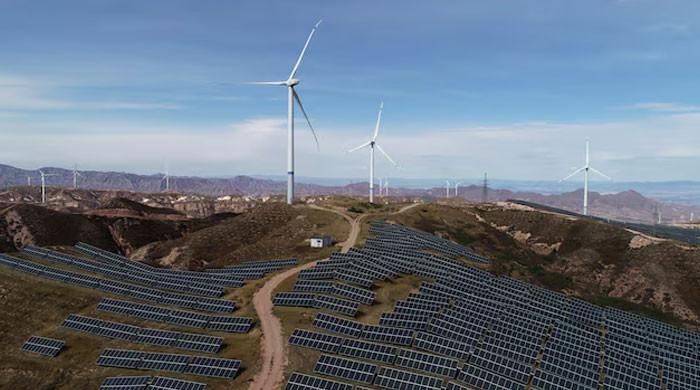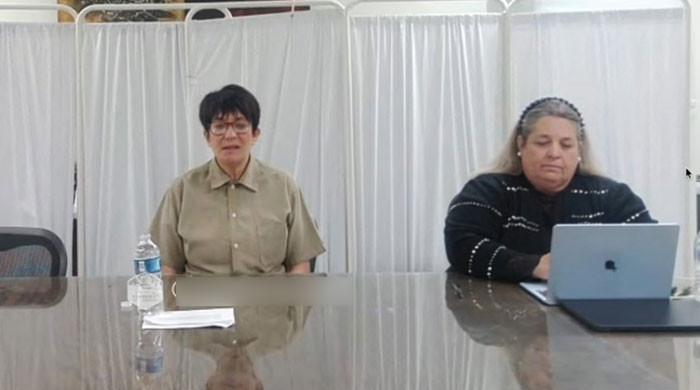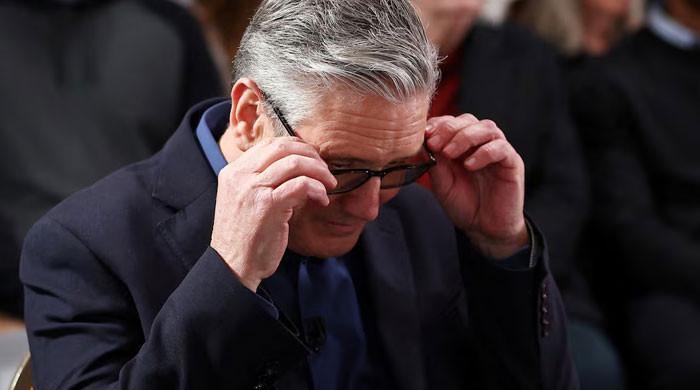Yellow Vest protests restarting? Protests against Macron could harden
Fears of the protests to get out of control as more radical demonstrators set the tone, unions say
March 18, 2023
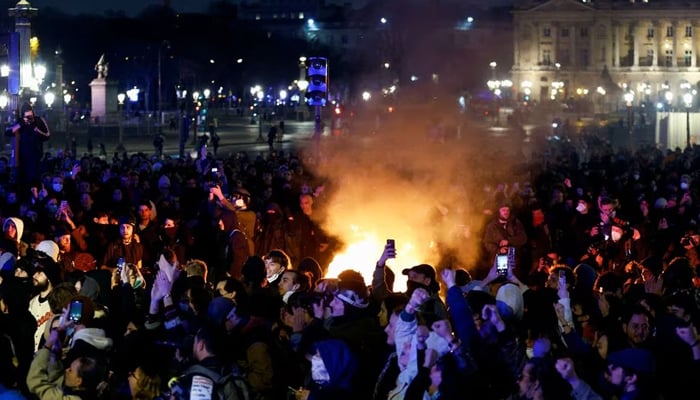
PARIS: French President Emmanuel Macrons move to force through his pension reform by short-circuiting parliament, unions and public opinion could rekindle social unrest reminiscent of the Yellow Vest movement, union leaders predict.
Protests against the government's use of a special constitutional provision, known as article 49.3, to sweep aside parliamentary opposition to the reform have been angrier than anything seen over the past two months.
Unions, united in coordinating their protests, called for a ninth strike day next Thursday, but many expressed fears they could lose control of the protests as more radical demonstrators set the tone.
"Yes, we are worried," Cyril Chabanier, the head of the moderate CFTC union, told AFP.
Commentators have begun to wonder whether the hardening of fronts could herald the return of the Yellow Vests, a grassroots movement that started in 2018 as a protest against rising fuel prices.
It snowballed into the biggest social action against Macron in his first term, the protests often marked by clashes with security forces and damage to property.
"It's a social law of physics," said Jean-Marie Pernot, a political scientist specialising in trade unions.
"If you don't respect any of the channels meant for the expression of dissent, it will find a way to express itself directly," he told AFP.
Early Yellow Vest action was marked by strikes, weekly demonstrations, the blocking of roads and fuel depots, and the worst clashes with riot police in decades.
It was only with the imposition of restrictions on movement brought about by the COVID crisis that the movement's actions were brought to a halt.
'Tougher action ahead'
"There may be tougher action ahead, more serious and further-reaching," warned Fabrice Coudour, a leading energy sector representative for the hard-left CGT Union.
"It may well escape our collective decision-making," he said.
The Yellow Vests prided themselves on having no designated leaders. They resisted attempts by left-wing politicians and unions to harness the movement's energy for their own ends.
But one of their more prominent spokesmen was Jerome Rodrigues, who lost an eye to a police rubber bullet during clashes at one demo.
Within hours of Macron's pensions move on Thursday, Rodrigues told an angry, cheering crowd outside the National Assembly that the objective was now nothing less than "the defeat" of the president.
At the same time, protests erupted in many parts of France, some demonstrators destroying street furniture, smashing windows and setting bins on fire.
In the central French city of Dijon, protesters burned effigies of Macron.
The CGT announced that it would force the shutdown of energy giant TotalEnergie's refinery in Normandy in France's northwest as of this weekend.
Picket lines at power utility Electricite de France would also be extended, the CGT said. And early on Friday, CGT activists blocked Paris's busy ring road, the Boulevard Peripherique.
The unions have already put the responsibility for any future trouble at the government's doorstep.
"Obviously, when there is this much anger and so many French people on the streets, the more radical elements take the floor," said Laurent Escure, boss of the UNSA trade union federation.
"This is not what we want, but it's going to happen. And it will be entirely the government's fault," he told AFP.
For weeks, Laurent Berger, head of the moderate CFDT union, has been warning the government that there could be more trouble if protesters got the idea that the Yellow Vests achieved more with violence than established unions with their recent, mostly peaceful, mass demonstrations.
"What is the democratic outlook for a country that fails to respond to 1.5 or 2 million people in the streets on three occasions, but that did respond to a violent movement with a fifth of that number in the street?" he asked in an interview last month.
Macron made a number of concessions to the Yellow Vest movement.
Among other measures, he scrapped a planned carbon tax and boosted salaries for minimum wage earners, for a total estimated cost to public finances of 10 billion euros ($10.7 billion).





